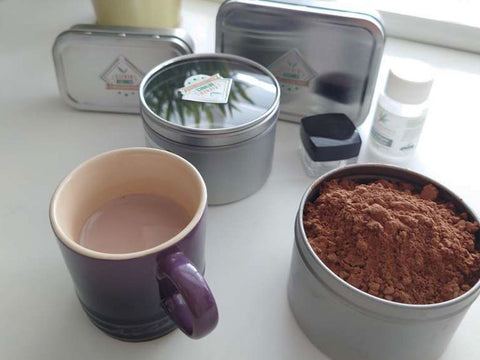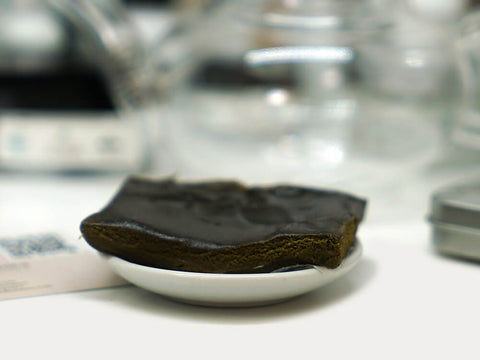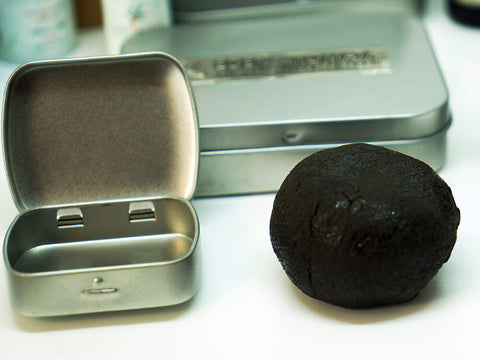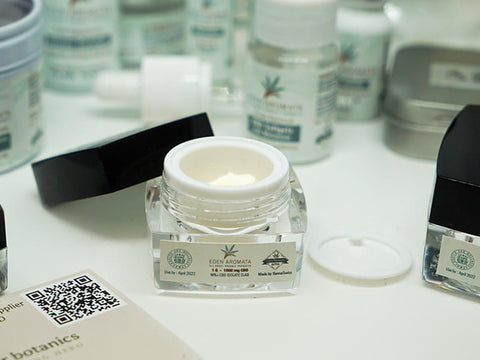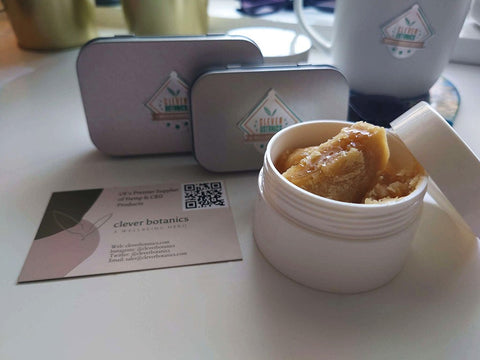CBD with MCT as carrier oil or Sunflower as an Alternative
We've received numerous inquiries about the differences between MCT and Sunflower oil when used as carriers for CBD, CBG, and other cannabinoids. Given the rising demand for clarity on this topic, today we'll delve into the advantages of each of these carriers and their role in enhancing the potency of CBD oil.
The meteoric rise in CBD oil's popularity stems largely from its myriad potential health benefits. But it's crucial to understand that not all CBD oils are crafted the same way. The choice of carrier oil can profoundly influence not just the product's absorption, but also its overall efficacy. Join us as we guide you through the intricate world of CBD oil, equipping you with the knowledge to make informed decisions.
What is CBD oil?
CBD oil, short for cannabidiol oil, is a natural substance derived from the hemp plant. It is non-psychoactive, meaning it does not produce the 'high' associated with marijuana use. Instead, it has been found to have potential therapeutic benefits, such as reducing anxiety and inflammation, alleviating pain, and improving sleep.
CBD oil can be taken orally, applied topically, or inhaled through vaporization. When taken orally, it can be added to food or drinks, or taken directly under the tongue. Topical application involves applying the oil directly to the skin, while vaporization involves heating the oil and inhaling the vapors.
While more research is needed to fully understand the potential benefits of CBD oil, early studies suggest that it may be a promising natural remedy for a variety of health conditions.
Carrier Oils for CBD
Carrier oils play a crucial role in CBD formulations. Essentially, they "carry" CBD and other cannabinoids, ensuring efficient and effective delivery to the body. Here's why they're important:
- Dilution: Pure CBD extracts are potent and can be harsh or overwhelming if used undiluted. Carrier oils help dilute these strong extracts, making them safe and palatable for consumption or topical application.
-
Bioavailability: Carrier oils enhance the body's ability to absorb and utilize CBD. By dissolving the cannabinoid molecules, they increase the bioavailability of CBD, ensuring that more of it is absorbed and put to use by the body.
-
Variety and Considerations: While many carrier oils have similar functions, they can differ in terms of origin, taste, and potential allergenic properties. Most carrier oils are derived from nuts or plants, so it's essential to be aware of potential allergies, especially if you have a nut allergy. Additionally, some oils may have a stronger taste, which might influence your choice depending on your preferences and how you intend to use the CBD product.
Always read labels and consult with professionals if unsure about which product to choose, especially if allergies are a concern.
This version provides a clearer breakdown and emphasizes the importance and functions of carrier oils in the context of CBD.

MCT coconut oil as a carrier for CBD or CBG
MCT coconut oil is a favoured choice as a carrier for CBD and CBG products.
They are popular wellness product that has been used by many people for its potential health benefits. When it comes to choosing a carrier oil for CBD/CBG oil, MCT coconut oil is a common choice due to its high bioavailability and ability to enhance the absorption of CBD.
MCT coconut oil is made up of medium-chain triglycerides, which are easily digested and metabolized by the body. This means that when CBD oil is combined with MCT coconut oil, it can be quickly absorbed into the bloodstream, allowing for faster and more effective results. Additionally, MCT coconut oil has been shown to have its own potential health benefits, such as improving cognitive function and supporting weight loss efforts.
Here's why:
-
High Concentration of MCTs: MCT coconut oil is rich in medium-chain triglycerides (MCTs). The body can absorb MCTs rapidly, ensuring that CBD or CBG mixed with MCT coconut oil is metabolized efficiently by the liver. This swift absorption allows users to feel the effects of CBD or CBG more promptly.
- Additional Health Benefits: Beyond its role as a carrier, MCT coconut oil offers potential health advantages:
- Brain Health: Some studies suggest that MCTs can support cognitive function.
- Energy Boost: MCTs can be converted quickly into energy, providing an immediate fuel source.
-
Support in Weight Management: There's evidence indicating that MCTs can aid in appetite regulation and fat oxidation.
Combining CBD or CBG with MCT coconut oil not only optimizes absorption but also complements the cannabinoid's effects with the health benefits of the MCTs.

Sunflower oil as an alternative
For individuals allergic to coconut oil or those who prefer an alternative, sunflower oil serves as an excellent carrier for CBD oil. Here's why:
MCT coconut oil is made up of medium-chain triglycerides, which are easily digested and metabolized by the body. This means that when CBD oil is combined with MCT coconut oil, it can be quickly absorbed into the bloodstream, allowing for faster and more effective results. Additionally, MCT coconut oil has been shown to have its own potential health benefits, such as improving cognitive function and supporting weight loss efforts.
Sunflower oil is a great alternative to MCT coconut oil as a carrier for CBD oil, especially for those who are allergic to coconut oil. Sunflower oil is rich in essential fatty acids and has a light texture which makes it easy to absorb into the skin. It also has anti-inflammatory properties which can help with skin conditions like acne and eczema.
CBD oil with sunflower that helps those that are allergic with coconut oil and still want to have CBD oil.
For those who suffer from a coconut allergy but still want to experience the potential benefits of CBD oil, there is an alternative carrier available: sunflower oil. CBD oil with sunflower oil as a carrier provides a safe and effective option for those with allergies.
Sunflower oil is rich in vitamin E, which has been shown to have anti-inflammatory properties. It is also high in oleic acid, which can help reduce inflammation and promote healthy skin. When combined with CBD oil, sunflower oil can provide a potent blend of natural compounds that may help alleviate symptoms associated with various health issues.










